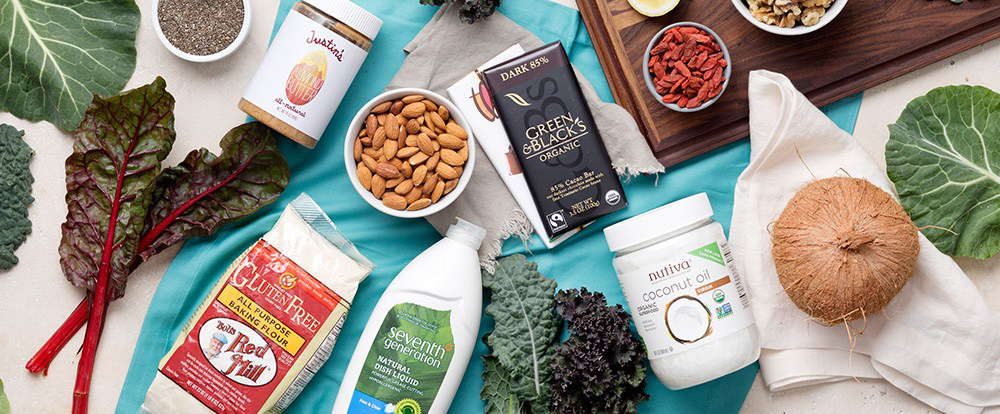Virgin coconut oil is mostly saturated fat, so it is easy to wonder: What makes it so healthy? The answer lies in the fact that not all saturated fats are created equal, and the ideal saturated fats in coconut oil are actually healthy for the heart and blood vessels (and so much more).
Coconut Oil Is Efficiently Metabolized
Unrefined coconut oil is made mostly of rare medium-chain fatty acids, which are a type of saturated fats that are easily broken down by the body and turned into energy. This is in contrast with long-chain fatty acids in meats and other oils, which end up deposited as fat and arterial plaque in the body. These awesome MCFAs are the reason coconut oil is a better oil choice for health and weight loss than those with LCFAs.
Coconut oil’s MCFAs also have the advantages of carbs without the price. Because so much of the saturated fat in unrefined coconut oil is burned for energy, it provides an energy boost in the same way carbs do, but without the fat storage or blood sugar spikes eating carbs will give you. Blood sugar spikes, it’s worth noting, contribute overwhelmingly to abdominal fat. Carbs are digested by the body using insulin, but since insulin isn’t necessary for the body to break down MCFAs, you don’t get the blood sugar spike and its related disadvantages.
Studies have even suggested that MCFAs can even help the body to burn fat by stimulating thermogenesis, and to boost metabolism by stimulating the thyroid. All of this means good things for people with hypothyroidism, type 2 diabetes, weight loss goals, and who want to regulate blood sugar. The MCFAs in coconut oil are even suggested to have antioxidant and anticoagulant benefits.
Coconut Oil Boosts the Immune System
Lauric acid is the primary MCFA in coconut oil, accounting for about half of its fatty acid content. Lauric acid is a rare fatty acid that has been determined to support immune function. Not only that, it even kills viruses, fungi, and harmful bacteria while being non-toxic and safe. That’s why it’s so good for the digestive tract and even for the skin when applied externally/topically. A study published by D.O. Ogbolu in the Journal of Medicinal Food first showed lauric acid’s antimicrobial properties. By converting to monolaurin in the body, it kills bacteria associated with stomach ulcers.
Did you know that lauric acid is in human mother’s breast milk? Researchers have determined that the purpose of lauric acid in breast milk is to strengthen the baby’s immune system. Lauric acid is available in very few oils/foods, but most highly available in virgin coconut oil. You are probably starting to see why it has so many uses and benefits!
Coconut Oil is Stable when Cooked
Natural saturated fats are also beneficial for cooking. They retain their nutritional integrity better than unsaturated fats when subjected to high heat, and as a bonus they are also less inflammatory to the body. Unrefined coconut oil contains the highest ratio of saturated to unsaturated fats compared to other oils, at 92% saturated, and thus is highly stable for cooking! In other words, while a healthy extra-virgin olive oil is great for making dressings and adding to prepared foods, unrefined coconut oil is better and healthier for baking and frying.
Now for a few questions and answers:
So, then saturated fats aren’t bad?
Saturated fats are necessary and important. Whether they are all healthy, and in what amounts, is a topic of debate. Nonetheless, different types of saturated fats are metabolized differently by the body. Coconut oil’s plant-based, medium-chain saturated fats are broken down more easily by the body than other saturated fats, and are actually healthy for the heart and blood vessels.
Additionally, unprocessed coconut oil is free of cholesterol and trans-fats. Avoid hydrogenated oils to avoid man-made trans fats.
How much coconut oil should I be getting?
Of course, none of this means to go ramp up your saturated fat intake in general. The idea is to use coconut oil in place of less healthy oils in food preparation, and to get a little into your daily diet for its health benefits. It is fine to consume one to three tablespoons per day. Try frying your food in it, adding it to a smoothie, or replacing butter in baked items with it. Saturated fats still should not account for more than 10% of one’s total daily calorie intake. Note: Even though coconut oil may help in preventing liver disease, people who already have liver disease are going to be the exception to these benefits, since the MCFAs are delivered directly to the liver for energy conversion, and should avoid taking it internally/eating it.
Examples of Health Uses
Just look around the site for lots and lots of uses for coconut oil, and maximize the daily benefits you get out of one jar! Here are just a few health areas in which coconut oil is useful:
- Sautéing foods
- Butter substitute
- Acne treatment
- Psoriasis
- Weight loss
- Stomach ulcers
- Boosting good HDL
- Candida treatment
- Hypothyroidism
For more about coconut’s health uses, and even its skin, hair, beauty, and household uses, just take a look around the site!
How do I choose the right type of coconut oil?
Generally speaking, good coconut oil is unrefined (“virgin”), cold-pressed, raw, pure, not hydrogenated, and stored in a glass jar. Read the article How to Choose the Best Coconut Oil to Buy for more information on choosing a product for the most benefits.








